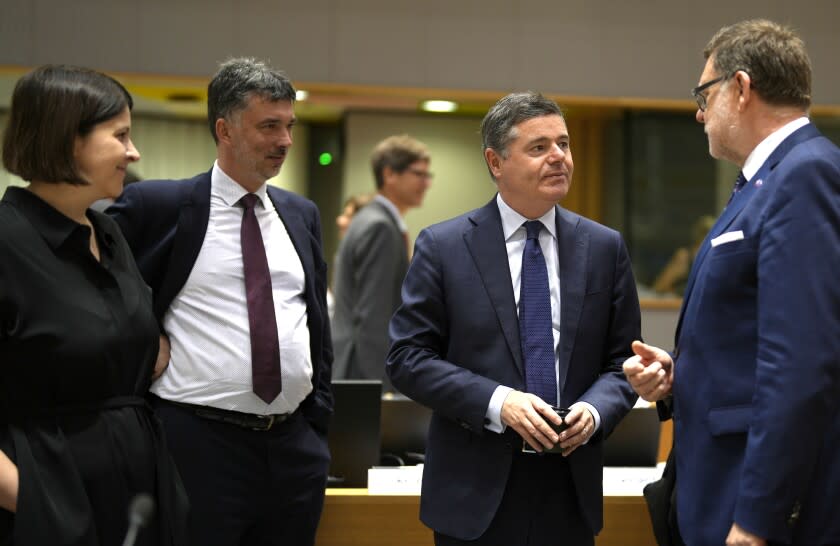EU grants Ukraine additional aid of $1 billion

European Union nations Tuesday approved fresh aid for Ukraine as the country faces growing economic damage from Russia’s invasion.
Finance ministers from the 27-nation bloc gave the go-ahead to 1 billion euros ($1 billion) in loans to the Ukrainian government.
The sum brings to $2.2 billion the total amount of EU macro-financial assistance to Kyiv this year. An initial $1.2-billion loan package got the green light from the bloc’s finance chiefs days before Russia’s Feb. 24 invasion.
The European Commission, the EU’s executive arm, in mid-May proposed extra assistance of up to $9 billion to Ukraine. The planned $1-billion payout is part of this initiative, which comes as Russia makes advances in eastern Ukraine and casualties mount on both sides.
“This will give Ukraine the necessary funds to cover urgent needs and ensure the operation of critical infrastructure,” said Zbynek Stanjura, finance minister of the Czech Republic, which currently holds the EU’s rotating presidency.
Ukraine said last week that its postwar reconstruction would cost $750 billion. Meanwhile, the government in Kyiv is estimated to need around $5 billion a month to keep the economy afloat.
Group of 7 countries, including the United States, have pledged to help Ukraine meet its short-term financing requirements in addition to providing military aid to Kyiv and imposing wide-ranging economic sanctions on Russia.
The five-month-old war is having worldwide economic and social reverberations, including possible food shortages in Africa and energy-supply disruptions in the EU. These in turn are raising the risk of a global recession.
The EU on Thursday is expected to lower its forecast of bloc-wide economic growth in 2022 for the third time this year.
In May, the European Commission projected that EU gross domestic product would expand 2.7% in 2022, downgrading a forecast made in February of 4% growth. The February outlook was itself weaker than a November projection of 4.3% GDP growth this year.
Over the past two months, Russia has cut off or reduced natural gas deliveries to more than 10 EU countries, and inflation in Europe has continued to surge. In June, inflation in the 19 countries that share the euro currency reached a record 8.6%.
This story originally appeared in Los Angeles Times.

